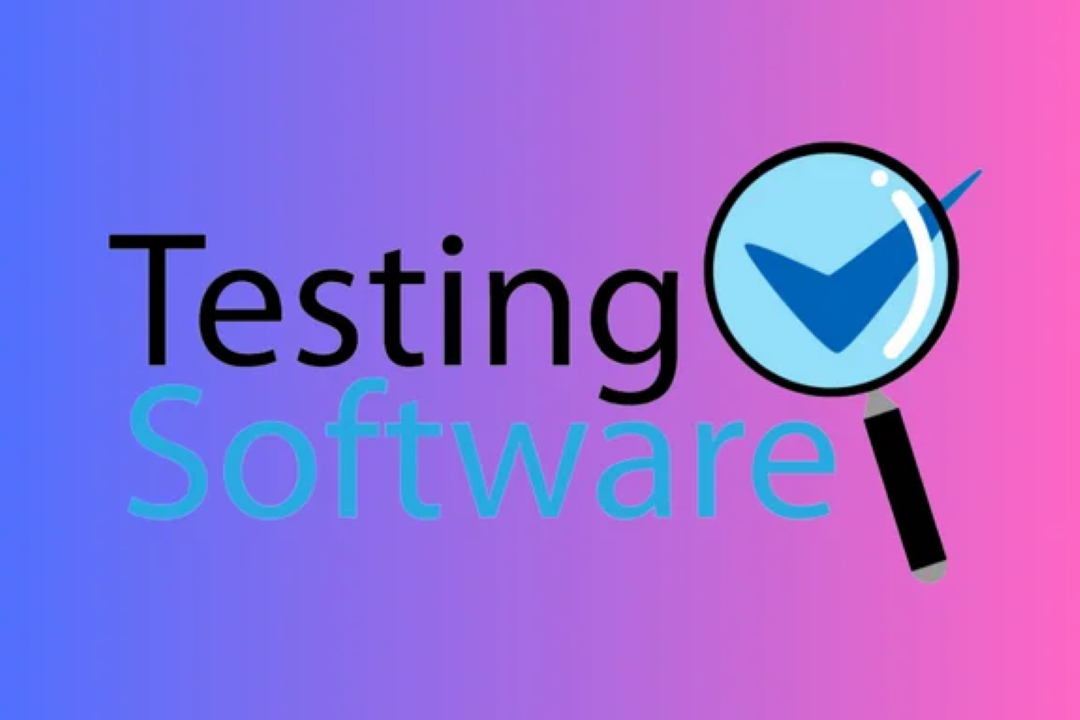Selenium Framework Course
The Selenium Framework Course at JustAcademy is designed to provide comprehensive training in automa
Selenium Framework Course
The Selenium Framework Course at JustAcademy is an invaluable resource for individuals looking to enhance their skills in software testing automation. With the increasing complexity of web applications, mastering Selenium—a leading tool for automating browsers—becomes essential for quality assurance professionals. This course not only teaches the foundational principles of test automation but also provides hands-on experience with real-time projects, enabling learners to create and execute test scripts effectively. By enrolling in this course, participants will gain the expertise required to improve testing efficiency, reduce manual effort, and ensure the delivery of high-quality software products.
To Download Our Brochure: https://www.justacademy.co/download-brochure-for-free
Message us for more information: +91 9987184296
The Selenium Framework Course at JustAcademy is an invaluable resource for individuals looking to enhance their skills in software testing automation. With the increasing complexity of web applications, mastering Selenium—a leading tool for automating browsers—becomes essential for quality assurance professionals. This course not only teaches the foundational principles of test automation but also provides hands on experience with real time projects, enabling learners to create and execute test scripts effectively. By enrolling in this course, participants will gain the expertise required to improve testing efficiency, reduce manual effort, and ensure the delivery of high quality software products.
Course Overview
The Selenium Framework Course at JustAcademy offers a comprehensive insight into automated testing for web applications using Selenium. Designed for both beginners and experienced professionals, this course covers essential topics such as Selenium WebDriver, test script creation, page object model, and data-driven testing. Participants will engage in real-time projects that facilitate hands-on learning and practical application of concepts. By the end of the course, learners will be equipped with the skills to automate web applications, enhance testing efficiency, and ensure robust software quality. This course is ideal for anyone aiming to specialize in test automation and elevate their career in software testing.
Course Description
The Selenium Framework Course at JustAcademy provides an in-depth exploration of automated testing for web applications, focusing on the powerful Selenium tool. Participants will learn key concepts such as Selenium WebDriver, test script development, page object model implementation, and data-driven testing. With a combination of theoretical knowledge and real-time projects, this course is designed to equip learners with the practical skills needed to efficiently automate web application testing, ensuring high-quality software delivery. Whether you are new to testing or looking to enhance your automation skills, this course will prepare you for a successful career in software quality assurance.
Key Features
1 - Comprehensive Tool Coverage: Provides hands-on training with a range of industry-standard testing tools, including Selenium, JIRA, LoadRunner, and TestRail.
2) Practical Exercises: Features real-world exercises and case studies to apply tools in various testing scenarios.
3) Interactive Learning: Includes interactive sessions with industry experts for personalized feedback and guidance.
4) Detailed Tutorials: Offers extensive tutorials and documentation on tool functionalities and best practices.
5) Advanced Techniques: Covers both fundamental and advanced techniques for using testing tools effectively.
6) Data Visualization: Integrates tools for visualizing test metrics and results, enhancing data interpretation and decision-making.
7) Tool Integration: Teaches how to integrate testing tools into the software development lifecycle for streamlined workflows.
8) Project-Based Learning: Focuses on project-based learning to build practical skills and create a portfolio of completed tasks.
9) Career Support: Provides resources and support for applying learned skills to real-world job scenarios, including resume building and interview preparation.
10) Up-to-Date Content: Ensures that course materials reflect the latest industry standards and tool updates.
Benefits of taking our course
Functional Tools
1 - Selenium WebDriver
Selenium WebDriver is the core component of the Selenium Framework, allowing users to automate browser actions. It provides a simple API for interacting with web elements, supporting various programming languages such as Java, C#, Python, and Ruby. By utilizing WebDriver, students can simulate user behaviors, such as clicking buttons, filling forms, and navigating through web pages, enabling them to perform end to end testing effectively. Understanding WebDriver is essential for building robust automation scripts that can handle complex web applications.
2) Selenium IDE
Selenium IDE is a browser extension that serves as a recording and playback tool for creating test cases. It is user friendly and caters to beginners who may not yet be familiar with programming. Students will learn how to leverage Selenium IDE to quickly prototype tests and generate code snippets in various programming languages. This tool also allows users to export into WebDriver scripts, giving learners a bridge to understanding more advanced automation techniques as they progress in their training.
3) TestNG
TestNG is a powerful testing framework inspired by JUnit and NUnit, providing additional functionalities for test configuration and parallel execution. In the Selenium Framework Course, students will explore how TestNG integrates seamlessly with Selenium, enhancing test management and reporting capabilities. Key features of TestNG include configuration annotations, data driven testing, and dependency testing, allowing for flexible test configuration. The combination of TestNG with Selenium provides a structured approach to organizing and executing automation tests efficiently.
4) Maven
Maven is a build automation tool used primarily for Java projects that streamlines the process of managing project dependencies. In this course, students will learn how to utilize Maven for managing Selenium project dependencies, making it easy to download and maintain the required libraries. With Maven, learners can focus on writing tests without the hassle of manually handling library versions. Additionally, students will learn how to create build profiles and execute tests using Maven commands, fostering a comprehensive understanding of project management within automation testing.
5) Selenium Grid
Selenium Grid is a tool that enables parallel execution of tests across various browsers and environments, significantly reducing testing time. In the training program, students will explore how to set up and configure Selenium Grid, allowing them to execute test cases across multiple machines or virtual environments. This is particularly beneficial for cross browser testing, ensuring that applications behave consistently regardless of the user’s browser choice. By using Selenium Grid, learners will enhance their testing efficiency and expand their ability to handle large scale testing scenarios.
6) Jenkins
Jenkins is an open source automation server that facilitates continuous integration and continuous delivery (CI/CD) pipelines. In the context of the Selenium Framework Course, students will understand how to integrate Selenium tests into Jenkins, thus automating the testing process as part of the software development lifecycle. By learning about Jenkins, students can set up automated test triggers, schedule test executions, and monitor test results, allowing for rapid feedback and continuous improvement in their testing strategies. This knowledge is crucial for adopting DevOps practices in modern software development environments.
Each of these tools contributes significantly to the overall learning experience in the Selenium Framework Course, equipping students with the practical skills and knowledge necessary for effective automation testing.
Certainly! Here are additional points to expand on the elements you might cover in your Selenium Framework Course at JustAcademy:
7) XPath and CSS Selectors
Understanding how to locate web elements is crucial for effective test automation. In this course, students will learn about XPath and CSS selectors, two methods for navigating and identifying elements on a webpage. XPath offers a path to elements based on the XML structure, while CSS selectors utilize the CSS framework's syntax to identify elements. Mastery of these techniques enhances the robustness of automation scripts, as students can efficiently interact with dynamically generated web pages and complex DOM structures.
8) Page Object Model (POM)
The Page Object Model is a design pattern that promotes test maintainability and reusability by encapsulating page specific functions and properties within classes. In the course, students will learn how to implement POM in their Selenium tests, separating test logic from page structure. This approach reduces code duplication and enhances readability, making it easier to manage and scale automation projects. By the end of the training, learners will be equipped to structure their test automation framework effectively.
9) Real Time Project Implementation
One of the key highlights of the JustAcademy Selenium Framework Course is the opportunity to work on real time projects. Students will be assigned practical assignments that simulate real world automation testing scenarios. This hands on experience not only solidifies theoretical knowledge but also enhances problem solving skills. By collaborating on projects, learners will gain insights into industry best practices, preparing them for the challenges they may face in professional environments.
10) Handling Dynamic Web Elements
Dynamic web elements can be challenging to automate due to their changing attributes. In this section, students will learn strategies to handle such elements effectively, including the use of waits (implicitly and explicitly), dynamic locators, and event listeners. Understanding how to manage dynamic content is essential for creating stable and effective automated tests, ensuring that scripts are robust against changes to the web application.
11 - Error Handling and Debugging
Effective automation requires the ability to handle errors and debug tests efficiently. In this course segment, students will learn about common exceptions in Selenium and how to implement robust error handling techniques within their test scripts. Additionally, debugging skills will be emphasized, allowing learners to identify and fix issues in their automation tests swiftly. This competency is invaluable for maintaining the integrity of automated testing processes.
12) Reporting Frameworks
A well structured reporting framework is crucial for understanding test results and communicating findings. In the course, students will explore various reporting tools compatible with Selenium, such as Extent Reports and Allure Reports. These tools provide a clear and concise representation of test executions, aiding in easy analysis and decision making. By learning to implement reporting functionalities, students can create professional test reports that convey information effectively to stakeholders.
13) Continuous Testing and DevOps Integration
As software development becomes increasingly agile, continuous testing has taken center stage. This course section will cover how to integrate Selenium tests into a CI/CD pipeline, driving the concept of continuous testing where tests are run automatically at multiple stages of development. Students will learn best practices for integrating Selenium with tools like Docker and Kubernetes, enabling them to create scalable and maintainable testing environments.
14) Mobile Testing with Selenium
With the rise of mobile applications, understanding mobile testing is increasingly important. Students will learn how to extend their Selenium knowledge to mobile application testing using tools like Appium, which allows for the automation of mobile apps across various platforms. This aspect of the course prepares learners for opportunities in both web and mobile testing, rounding out their skill set for diverse job roles in the field.
15) API Testing Integration
In addition to web testing, automation testers often need to validate backend services. This course section introduces students to API testing and how to integrate it within the Selenium framework using tools like Postman and REST Assured. By understanding how to automate API tests alongside UI tests, students will gain a comprehensive view of the application under test, ensuring thorough validation of its functionalities.
Through these additional points, the JustAcademy Selenium Framework Course aims to provide a well rounded educational experience, equipping students with the knowledge and skills necessary for a successful career in test automation.
Browse our course links : https://www.justacademy.co/all-courses
To Join our FREE DEMO Session:
This information is sourced from JustAcademy
Contact Info:
Roshan Chaturvedi
Message us on Whatsapp:
Email id: info@justacademy.co
Aspire Systems Php Interview Questions For Experienced
What Is Defect Report for Manual Testing












